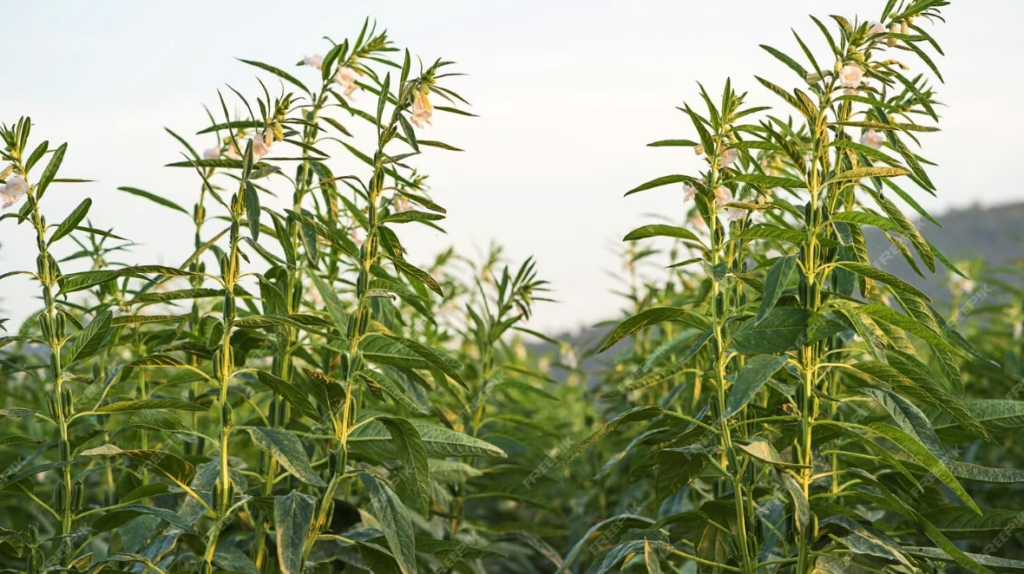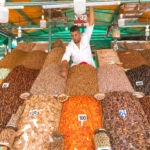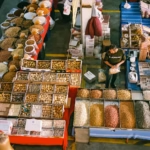
Sesame seeds have long been a staple in many traditional diets around the world. But in recent years, they have gained significant popularity in health-conscious and wellness-driven markets due to their nutritional richness, versatility, and natural properties. As global demand rises for healthier food ingredients, African sesame export is emerging as a high-value commodity with strong growth potential.
Across Africa, countries like Sudan, Nigeria, Ethiopia, Burkina Faso, and Tanzania are major producers of sesame seeds. With vast arable land, favorable climate, and a growing focus on quality farming, Africa has all the ingredients to become a global leader in the sesame trade. In this blog, we’ll explore the dynamics of African sesame exports, the demand drivers, opportunities for suppliers, and what lies ahead for this valuable crop.
Why Sesame Is in Global Demand
The shift toward plant-based diets and natural ingredients has put sesame seeds in the spotlight. Rich in protein, fiber, healthy fats, and essential minerals like calcium, magnesium, and iron, sesame seeds are considered a superfood. They’re used in various forms: raw, roasted, oil-extracted, or ground into tahini. In particular, the oil is valued for its long shelf life and stability at high temperatures, making it a favorite in culinary applications.
Markets in Europe, Asia, and North America are seeing a growing demand for sesame-based snacks, health foods, and cooking oils. As consumers become more health-aware, the popularity of sesame is expected to continue growing. This has a direct impact on the rise of African sesame export, as buyers seek new and reliable sources.
Africa’s Advantage in Sesame Production
Africa produces more than half of the world’s sesame exports, thanks to its ideal growing conditions and a long history of sesame cultivation. Countries like:
- Sudan: Among the top global exporters, Sudan’s sesame is known for its oil content and flavor.
- Ethiopia: Offers high-quality white sesame, especially the Humera variety, prized in international markets.
- Nigeria: Rapidly scaling its production capacity with government support.
- Tanzania and Burkina Faso: Also making strides in volume and quality.
These regions often rely on smallholder farmers who grow sesame as a cash crop. Increasingly, cooperatives and agribusiness firms are entering the scene, helping scale production and standardize post-harvest processes to improve quality.
With improvements in logistics and certification, African sesame export is becoming more attractive to global buyers looking for consistent supply and traceable origin.
Health-Conscious Markets Driving Demand
Today’s consumers are more informed about what they eat. They seek products that are non-GMO, chemical-free, and sustainably sourced. Sesame fits perfectly into this demand profile, offering:
- Nutritional value: Rich in antioxidants, lignans, and heart-healthy fats.
- Allergen awareness: Though it is a declared allergen in some countries, sesame is still used widely in gluten-free and vegan diets.
- Functional use: Beyond food, sesame oil is used in cosmetics, personal care, and pharmaceuticals.
Countries like Japan, South Korea, India, and China have long-standing culinary uses for sesame. But Western countries are now catching up, especially with the rise in tahini-based products, sesame snacks, and seed butters. This positions African sesame export as a key supplier to a growing and diverse market.
Challenges Facing African Sesame Export
Despite the promise, there are challenges that African sesame producers and exporters must navigate:
- Quality control: International markets require strict grading, uniformity, and moisture content.
- Post-harvest handling: Poor storage can lead to mold contamination (e.g., aflatoxins), making the crop unsuitable for export.
- Certification and traceability: Buyers demand proof of origin, organic certification, and ethical sourcing.
- Market volatility: Prices can fluctuate due to weather, global demand shifts, or trade restrictions.
Tackling these issues requires investment in farmer training, modern drying and storage facilities, and strong logistics. Initiatives that link farmers directly to exporters can also help improve incomes and product consistency.
Opportunities for African Exporters
With the right support and infrastructure, African countries can significantly increase their share of the global sesame market. Key opportunities include:
- Value addition: Instead of only exporting raw seeds, African businesses can explore oil extraction, roasting, and packaging.
- Direct market access: Connecting with international buyers via digital platforms and trade fairs helps reduce middlemen and increases margins.
- Sustainability: Emphasizing organic farming and fair trade practices aligns with the values of health-conscious consumers.
- Trade agreements: Leveraging duty-free access to markets in the EU and preferential terms in the U.S. under AGOA can enhance competitiveness.
Companies like Ahar Group, which specialize in ethically sourced African agricultural products, play a crucial role in bridging the gap between producers and global markets. By focusing on quality, compliance, and customer relationships, such firms help ensure that African sesame export becomes a trusted brand worldwide.
The Role of Innovation and Policy
African governments and private players must work together to strengthen the sesame value chain. Some areas that need attention include:
- Research and development: Developing disease-resistant and high-yield seed varieties.
- Farmer education: Teaching best practices in sustainable farming and post-harvest care.
- Access to finance: Helping smallholders scale their operations with affordable credit.
- Infrastructure: Investments in roads, storage, and port facilities to speed up the supply chain.
Digital agriculture tools can also enhance traceability, pricing transparency, and logistics efficiency—key demands of international buyers.
Conclusion: The Future of African Sesame Export
The world is waking up to the nutritional and economic value of sesame seeds, and Africa stands at the forefront of this global shift. With fertile land, skilled farmers, and increasing attention from global buyers, the potential for African sesame export has never been greater.
To capitalize on this momentum, stakeholders must focus on quality improvement, sustainable farming, and market diversification. Exporters who can deliver consistency, meet health and safety standards, and build long-term buyer relationships will thrive.
As consumer trends evolve and demand for health-focused ingredients grows, African sesame is more than just a seed—it’s a symbol of Africa’s growing influence in global agricultural trade.











Add comment